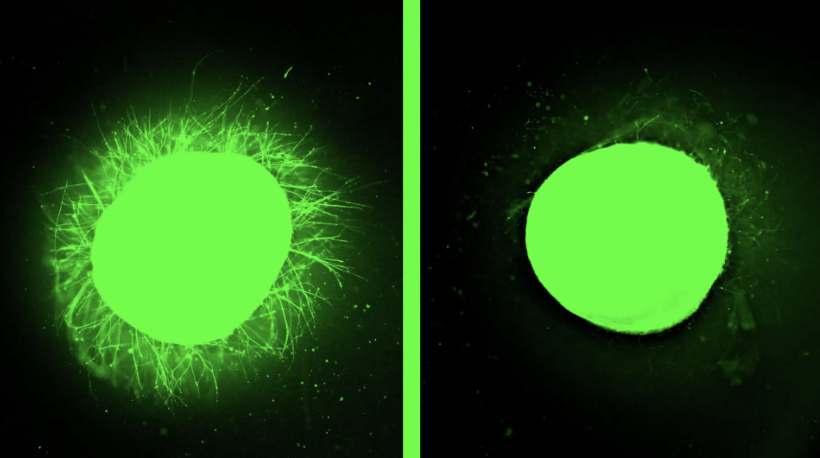Exploring Bacterial Chromosomes in Synthetic 2D Compartments
Journal: Nature Communications
Author: Greiss, F., Daube, S.S., Noireaux, V. et al., Israel / USA
This study demonstrates the transplantation of intact E. coli chromosomes into 2D microfluidic compartments, allowing controlled probing of chromosome conformation, DNA-bound proteins, and cell-free gene expression. The authors show that native proteins organize chromosomes into compact “blob-like” structures, and transcription influences their compaction, revealing genome-scale dynamics in a cell-free environment. This platform provides a foundation for studying DNA transactions and advancing the design of synthetic cells.
HBsAg-Tagged Tumour Vaccine Harnesses Virus-Specific Memory T Cells to Eliminate Solid Tumours
Journal: Nature Biomedical Engineering
Author: Wang, W., Chu, Y., Zhao, L. et al., China
Researchers from China introduce H-TVAC, a tumour vaccine system that tags cancer cells with hepatitis B surface antigen (HBsAg) to engage pre-existing HBsAg-specific memory T cells. The approach not only directly lyses tagged tumour cells but also triggers broader tumour-specific immunity via epitope spreading, effectively eliminating heterogeneous solid tumours in multiple preclinical mouse models. H-TVAC shows improved survival, reduced metastasis, and decreased tumour recurrence.
ProKAS: Multiplexed Proteomic Sensors for Spatial Kinase Signaling
Journal: Nature Communications
Author: Comstock, W.J., Navarro, M.V.A.S., Maybee, D.V. et al., USA / Brazil
This study presents ProKAS, a proteomic sensor system that uses barcoded peptide arrays to quantitatively and spatially monitor kinase activity in cells via mass spectrometry. ProKAS enables simultaneous analysis of multiple kinases, such as ATR, ATM, and CHK1, revealing distinct signaling responses across cellular compartments and under genotoxic stress. The platform provides a versatile tool for dissecting complex kinase networks and designing targeted substrates for other kinases.
OrganoidChip+: Integrated Microfluidic Platform for Culturing and Imaging Adult Stem Cell-Derived Organoids
Journal: Scientific Reports
Author: Moshksayan, K., Khanna, R., Camli, B. et al., USA
A study published in Scientific Reports introduces OrganoidChip+, a microfluidic platform that combines culturing, staining, and high-content imaging of adult stem cell-derived organoids in a single device. The system enables high-resolution tracking of growth, viability, redox state, and detailed confocal imaging, outperforming traditional Matrigel cultures in growth and imaging consistency. OrganoidChip+ provides a scalable, cost-effective tool for organoid research, drug screening, and disease modeling.



